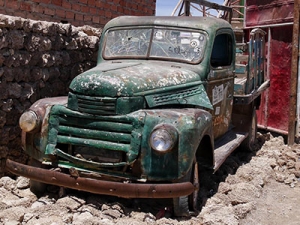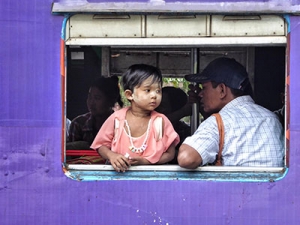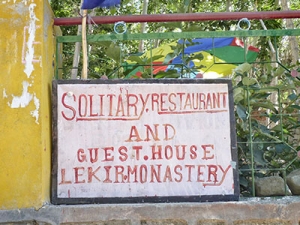Whether cruising, flying, walking or levitating planning our next journey, day trip, trek or photography expedition we all need to remember that plans are useless, but planning is essential! Shame the Government got that wrong!!
But first let us heap praise on Professor Sir David Spiegelhalter who is chairman of the Winton Centre for Risk and Evidence Communication at Cambridge.
In a very candid interview on the BBC’s Andrew Marr Show he delivered these nuggets of insight:
-
- condemned ministers for using daily coronavirus figures as “number theatre” rather than providing “genuine information” to the public.
- characterised the Government’s method of giving out numbers on Covid-19 deaths and testing is “not the trustworthy communication of statistics”
- described the Government’s communication to the public about coronavirus through its daily televised briefings, as “frankly, completely embarrassing”.
Particularly telling was his desire for data to be presented by people who know its “strengths and limitations” and would “treat the audience with respect”. “It’s such a missed opportunity. The public out there who are broadly very supportive of the measures, they’re hungry for details, for facts, for genuine information, and yet they get fed this what I call ‘number theatre’, which seems to be co-ordinated really much more by a Number 10 communications team rather than genuinely trying to inform people about what’s going on.”
Of particular relevance to travellers was his observation that it is “very important that we are aware of what the risks are”. “I’m not saying how anybody should feel, or what they should be worried about, but my aim, as a statistician, was that people’s anxiety should be at least roughly proportional to the actual risks that they face.”
 Being risk aware rather than risk averse is where planning comes top of the list, the more so given the zigzag tracks of Government interventions worldwide on peoples’ movement outside their own homes let alone faraway airports and hotels.
Being risk aware rather than risk averse is where planning comes top of the list, the more so given the zigzag tracks of Government interventions worldwide on peoples’ movement outside their own homes let alone faraway airports and hotels.
Just as we need to plan, so do airlines, airports, cruise companies and the rest of the travel industry…..IAG is planning a meaningful return to service in July with a planning scenario that could see an overall reduction in passenger capacity of c.50 per cent in 2020, but these plans are highly uncertain and subject to the easing of lockdowns and travel restrictions. As part of cost saving IAG expects to defer deliveries of 68 aircraft and is embarking on significant discussions with its trade unions on restructuring and downsizing. However, what will actually happen remains to be seen…
Take your time to work out what you really like to do and really like to be in the next six to nine months, then take a long pause and ask yourselves if this is realistic, reasonable and the right thing to do. Consider the risks and opportunities involved such as the local infrastructure, social distancing, hotel availability. And don’t forget to update yourself on other risks including the weather !
The New Normal
Recognise that you need to stress test everything you have “planned” and do a reality check. Tomorrow’s ‘New Normal’ may not be quite what you are expecting now. These days the power of the internet does give us speedy access and a much greater insight into what’s happening on the ground. Using an experienced and well connected travel agent and/or tour company is now vital. Check out their track record and ask fellow travellers who they recommend.

Availability is particularly tricky to judge right now. For example, IATA chief economist Brian Pearce argued that keeping middle seats empty on narrow bodied aircraft with standard 3-3 cabin layouts would reduce capacity by a third, with the practice adopted on long haul jets typically leading to a 40% capacity reduction. On regional jets and turboprops – typically featuring 2-2 cabin layouts – the measure would halve capacity.
Overall, Pearce suggested, airlines would be able to use just 62% of the industry’s available capacity. In 2019, carriers needed – on average – load factors of 77% to break even. Out of 122 airlines analysed by IATA, only four would be able to operate profitably.
Schedules, frequencies and capacity may be very volatile as the sector rebuilds itself./or tour company is now vital.
Value isn’t just about getting a good deal…depending on your preferences it encompasses your itinerary, staying in places of the quality you prefer, the calibre of local guides, the cover provided by your insurance, and the reliability of your chosen carrier and holiday provider.
IATA expects that “most airlines will really struggle” and ticket prices would be “significantly higher” in the long term, compared with pre-crisis levels, predicting that average fares would need to be increased 43-54% for airlines to break even.
My guess is there will be more people taking group or bespoke tours rather than going it alone over the next year or two. If something goes wrong it’s good to have someone else manage the logistics including hotel reservations and cancelled flights.
Planning your next world trip
Membership of airline loyalty schemes may offer good deals in the future but be sure that the choice you make offers flexibility. Cheap tickets sold in Airline sales – of which many will occur over the next few months – are often totally inflexible.
Enjoyment should be at the heart of travel…so do prepare yourself for a bit more hassle than you are used to during your journey! Airports are no exception: At her appearance at the Transport Select Committee, Chief Executive of the Airport Operators Association Karen Dee said ‘For UK aviation to recover we need the Government to take a number of steps:
- Airports need clear public health measures, based on medical advice, that ensure passenger safety and wellbeing while facilitating travel.
- These should be applied consistently across UK aviation and transport more widely.
- The standards should be proportionate, time-limited and as international as possible in their application.
- It should be accompanied by Government communications to prepare passengers for what to expect when travelling.
Crucially, the sector must have the ability to deny passengers boarding if they do not comply with the agreed health measures.
Lockdowns and other initiatives will still be possible… The European Commission is preparing to unveil a set of rules for the safe reopening of air travel when the first – and maybe the only -series of lockdowns end.
Social Distancing. The ultimate destination:
Stuart McAdam
TheMcAdamee ~ Planning your next world trip ~